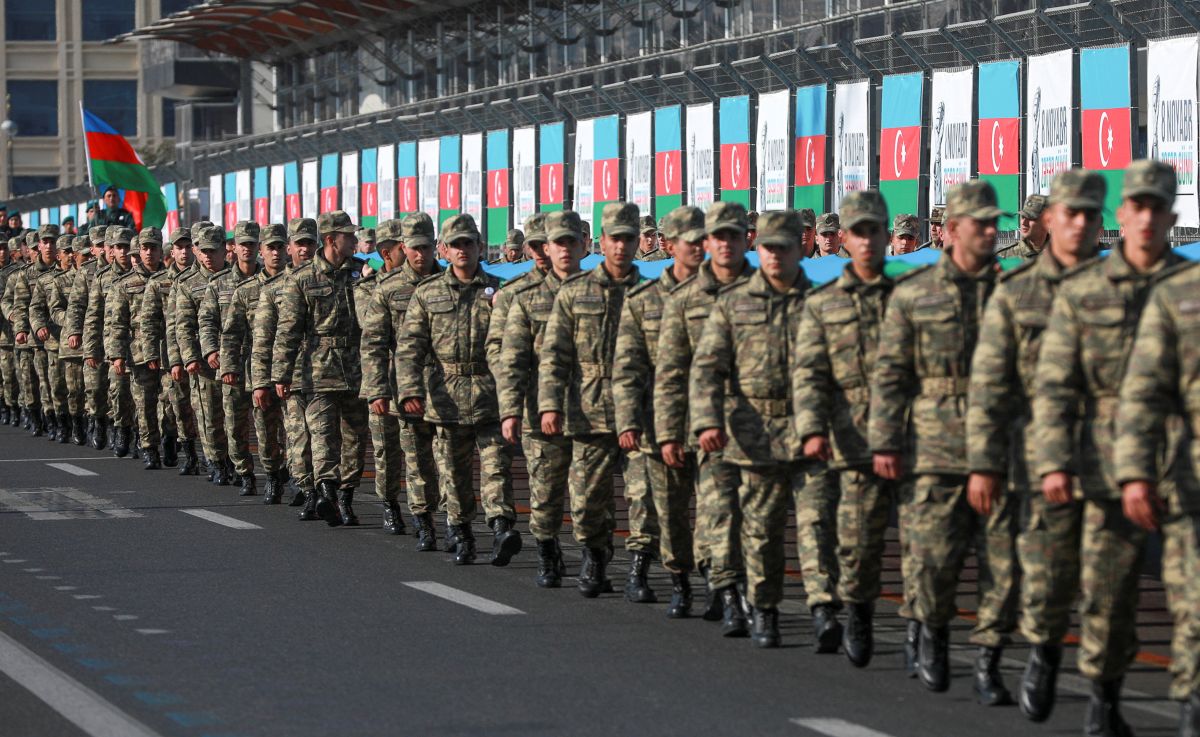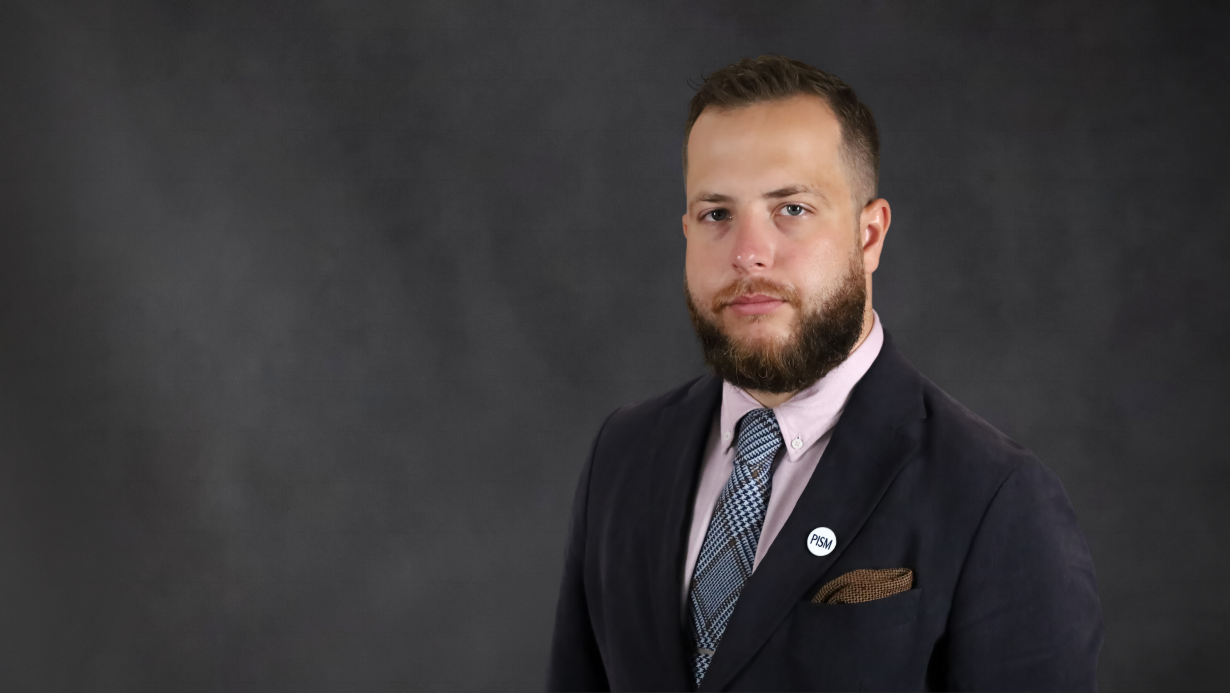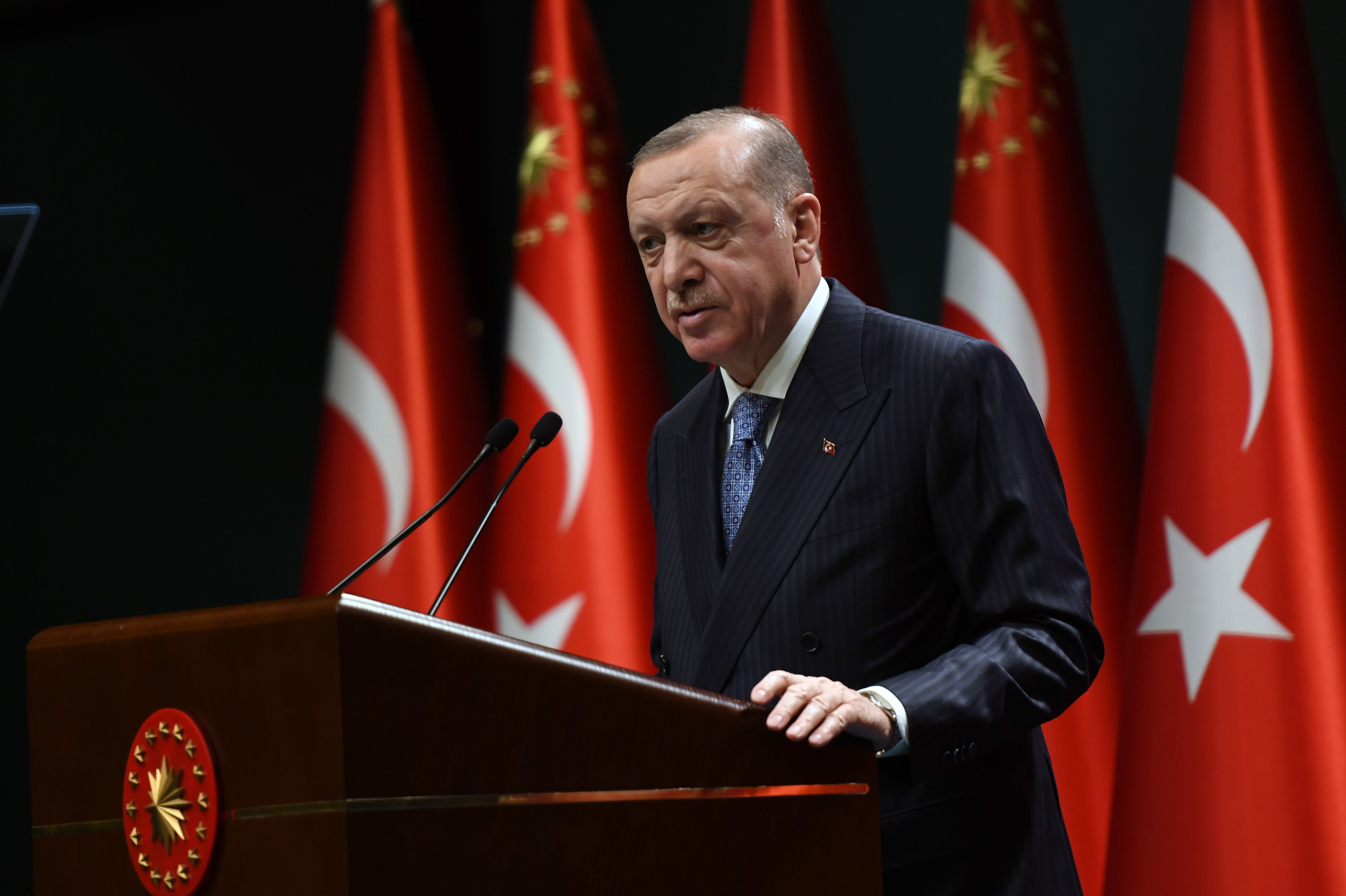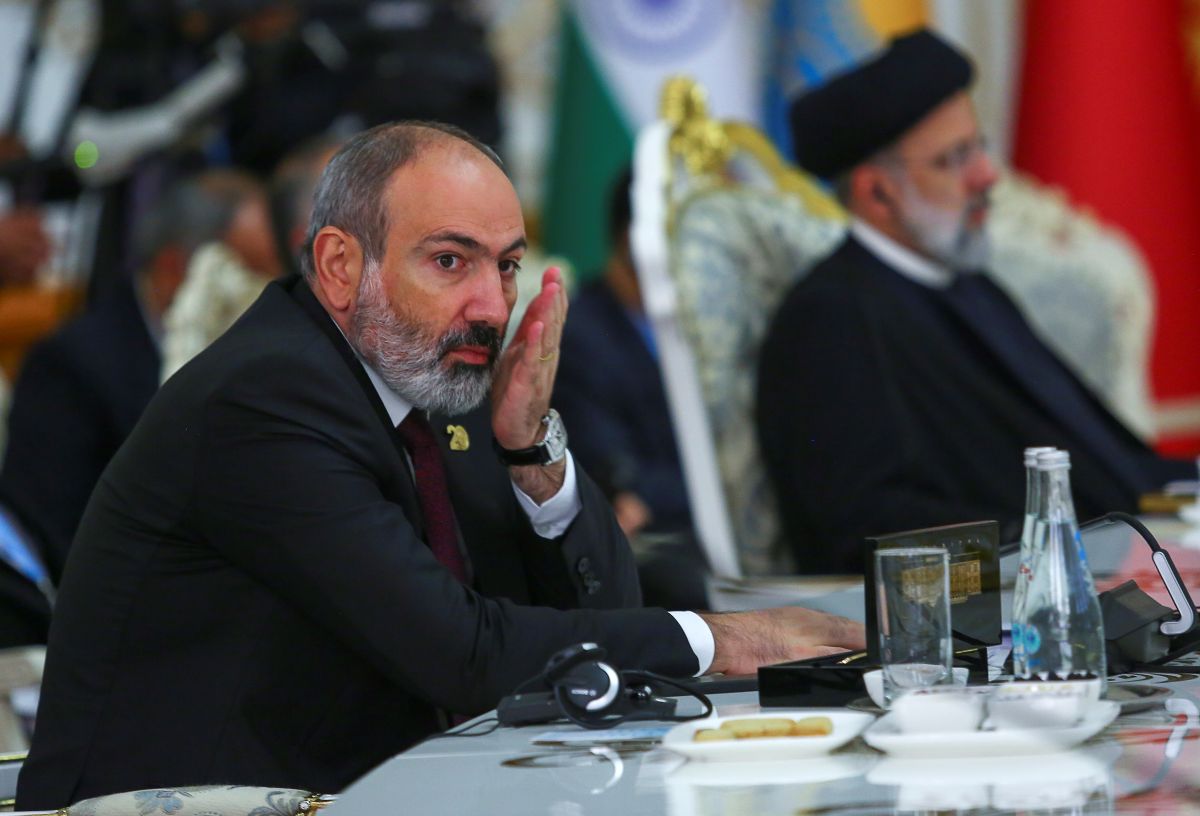Assessing the Perspectives on the Nagorno-Karabakh Conflict
Another armed escalation between Armenian and Azeri forces, initiated by Azerbaijan, took place in Nagorno-Karabakh in early August this year. The country’s goal is to exert maximum political pressure on Armenia during two-track peace talks under the auspices of the EU and Russia. At the moment, there is no chance of resolving the conflict, as it would not benefit Azerbaijan, which is the stronger side of the conflict, nor Russia, which is using the situation in the NK to emphasise its role as a mediator and to get the U.S. and EU countries to resume political dialogue with it.
 AZIZ KARIMOV/ Reuters/ FORUM
AZIZ KARIMOV/ Reuters/ FORUM
The Situation in Nagorno-Karabakh after the 2020 War
Since the end of the Nagorno-Karabakh (NK) war in 2020, the line of demarcation in the territory and the direct border between Armenia and Azerbaijan regularly witnesses Azerbaijani-initiated armed incidents (including at Sev Lake in May 2021 or in the village of Parukh in March 2022). These incidents allowed Azerbaijan to move the line of demarcation or the state border in its favour, occupying areas important for military operations. In early August, Azerbaijani forces carried out an offensive in the vicinity of the Lachin corridor, connecting Armenia and NK, as a result of which they took control of several strategically located hills.
The current status quo in NK was shaped as a result of the 9 November 2020 truce, concluded under the auspices of Russia. Azerbaijan took control of about 75% of the territories previously controlled by Armenians in NK and began the process of securing the area (including demining), reconstruction, and dismantling the remnants of Armenian settlements (including cultural and religious sites). Armenia retained about 25% of the previous NK territory, along with the Lachin corridor connecting NK and Armenia.
Russian peacekeepers (about 2,000 soldiers), deployed in NK for five years, became the guarantor of the agreement. In addition to the soldiers, several hundred FSB and Emergency Ministry officers are stationed in NK. They currently have a superior role to the Armenian and NK armed forces, also stationed in the disputed territory. NK is de facto under Russian control—the overriding role vis-à-vis the Armenian administration is exercised by the command of the Russian military contingent, which has taken over the management of all spheres of the NK’s functioning (border protection and public order, municipal economy, telecommunications). At least half of NK citizens have obtained Russian passports.
The post-2020 OSCE Minsk Group has lost its role in the peace process, in which Russia and the EU have engaged independently. Russia has focused on opening regional transport corridors that strengthen its position because it acts as the guarantor, creating a trilateral working group for this purpose. The EU joined the mediation in March this year, with European Council President Charles Michel leading the establishment of a bilateral border delimitation commission. Both formats have so far failed to make significant progress in the peace process.
Azerbaijan’s Perspective
Azerbaijan is posturing its readiness to conclude a peace deal with Armenia, taking advantage of its stronger position in the conflict. In doing so, it does not agree to restore the mandate of the Minsk Group. The conditions Azerbaijan places on Armenia are obtaining an extraterritorial corridor to Nakhichevan through Armenian territory in an Azerbaijani-designated section (near the southern border with Iran), delimitation of borders based on maps favourable to Azerbaijan (various versions exist), withdrawal of Armenian armed forces from the NK and the eventual assumption of control over the entire NK. These demands were probably the basis of the Azerbaijani proposal for normalisation of mutual relations, expressed in the “5 points” statement by Foreign Minister Jejhun Bayramov in March (the contents have not been published).
Parallel to the negotiations, Azerbaijan maintains military pressure on Armenia, limited only by the peacekeeping activities of the Russian contingent in NK. By regularly initiating armed incidents, Azerbaijan hopes to gain political concessions from Armenia and maintains the wartime mobilisation of its own society.
Armenia’s Perspective
Armenian Prime Minister Nikol Pashinyan has expressed unprecedented willingness to make concessions, including handing over most of the maps of mined areas recaptured by Azerbaijan or beginning to withdraw Armenian armed forces from NK. Armenia’s conditions are that Azerbaijan release all detained prisoners of war, guarantee the rights of Armenians living in NK, and renounce claims by Azerbaijan to Armenian territory. At the same time, the Armenian government does not agree with the Azerbaijani proposal on how to delimit the borders and open transport corridors, including the one to Nakhichevan, and suggests an alternative that would be subject to Armenian supervision in terms of passport controls or customs and would run deep into Armenian territory rather than along the border with Iran, as Azerbaijan demands. These demands were probably the basis of the Armenian foreign minister’s counter-proposal to Bayramov’s “5 points” (which FM Ararat Mirzoyan termed “6 points” on 5 May). In doing so, Armenia advocates resuming the work of the Minsk Group and restoring its mandate as the main forum for negotiations.
The willingness to make concessions to Azerbaijan and the parallel attempt at normalisation with Türkiye are causing protests and criticism of Pashinyan from the opposition, anchored in the Karabakh clan, as well as among the diaspora and because of tensions within the ruling elite (among others, this led to the resignation of President Armen Sargsyan in February). In the opposition’s view, Pashinyan is seeking a de facto relinquishment of Armenian control of NK in order to guarantee the security of Armenian territory, a moved judged by his opponents as high treason.
Role of Russia and Türkiye
Russia remains the guarantor of Armenia’s security and has increased its military presence in Armenia since 2020, strengthening the contingent at the military base in Gyumri and dislocating soldiers to garrisons in Syunik province, the most vulnerable to Azeri attacks. At the same time, Russia has consolidated its control over NK, creating instruments to guarantee it has a military presence even after the expiration of the peacekeepers’ mandate in 2025 (including passportisation). The start of the war in Ukraine in February, however, forced Russia to coordinate tactically with Azerbaijan to secure influence in NK. This was likely addressed in Azerbaijani President Ilham Aliyev’s 22 February visit to Moscow on the eve of the Russian full-scale invasion of Ukraine. Russian peacekeepers have in practice increased the margin of tolerated actions by the Azeri side. Consequently, Russia is using the Azeris’ actions to emphasise its role as mediator and peacemaker in NK.
Türkiye remains Azerbaijan’s most important political and military ally. However, since 2021 it has been conducting an independent attempt to normalise relations with Armenia, making its success contingent on Armenian concessions to Azerbaijan. In this way, Türkiye wants to both strengthen the Azeri pressure on Armenia and consolidate Turkish influence in the South Caucasus, demanding that Armenia open the Azerbaijan-Nakhichevan corridor on the Azerbaijani’s terms, which would guarantee that it would obtain a land transport link with Azerbaijan.
Conclusions
The current escalation in NK is part of the constant military pressure maintained by Azerbaijan against Armenia since the end of the war in 2020. Due to the passive attitude of the Russian military, there has been a high risk of further deterioration of the NK security situation since 2020. However, there is no threat of another war of comparable magnitude to the one that year, as this would be beyond the scope of Azerbaijan’s offensive actions as tolerated by Russia.
Russia has instruments in NK to more effectively reduce the scale of armed incidents caused by Azerbaijan but does not use them to their full potential. Russia’s attitude is driven by its desire to use Azerbaijan’s actions as an argument in negotiations with the U.S. and EU countries, portraying itself as an actor indispensable for ensuring stability in and around NK. Also related to this is the Russian-inspired intensification of Armenian diplomacy’s efforts to restore the mandate of the Minsk Group, seen by Russia as an attractive forum to try to resume political dialogue with France or the U.S. Poland and the EU should counter Russia’s exploitation of the situation concerning NK and support further mediation led by Michel. Through it, the EU has demonstrated a real commitment to resolving the conflict (as opposed to Russia’s instrumentalisation of the Armenian-Azeri conflict) and an ability to stimulate the peace process more effectively than the Minsk Group format.





